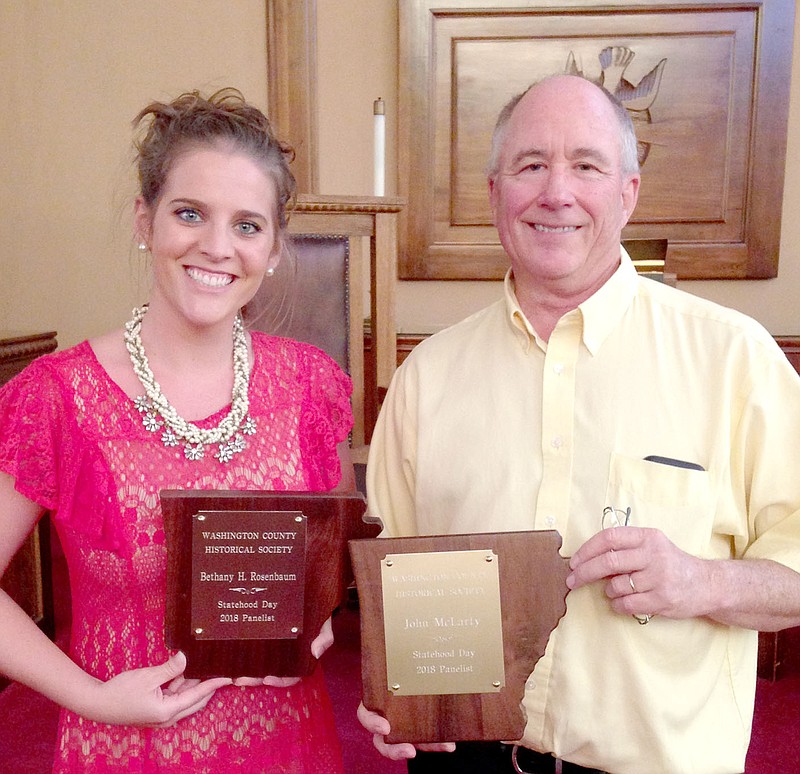FAYETTEVILLE -- The 2018 Statehood Day celebration of the Washington County Historical Society, held June 10, held some surprises -- even for the veteran local historians in the crowd.
The event, held in the sanctuary of the First Christian Church in Fayetteville, was attended by about 60 people and is an annual celebration noting the state of Arkansas' entry as a state on June 15, 1836.
Washington County Historical Society always holds the observance on the Sunday nearest to the actual date of statehood.
This year's theme focused on historic trails in Arkansas and especially trails that are found in Washington County. The two-hour discussion and question and answer provided some information about the development of the region's new, modern bike and foot trail system along these historic routes from centuries ago.
Bethany Henry Rosenbaum, a University of Arkansas doctoral student in history, and John McLarty, president of the Northwest Arkansas Heritage Trail Partners, led the discussion.
Rosenbaum, a native of Missouri, recently delivered a paper on "Trails and Heritage Tourism: A Case Study of the Trail of Tears National Historic Trails in Arkansas" at the 77th Annual Arkansas Historical Association meeting in Fort Smith.
McLarty is a former staff director with Northwest Arkansas Regional Planning and Development District and is known as the "father of the Razorback Greenway," for his diligent work to have all four of the major cities in Benton and Washington County, along with both county governments cooperate and participate in helping plan, develop and build these foot-path and bike-path trails.
Focusing on the Trail of Tears, especially the "Benge Route," led by a businessman-soldier Benjamin Benge, Rosenbaum discussed the reasons why the Native Americans from the Five Civilized Tribes, made the trek from Georgia to what is now Oklahoma.
She and McLarty related the two biggest events along this circuit of the Benge Route was an Indian-on-Indian murder in Fayetteville and a young 14-year-old girl falling ill and dying and being buried in Cane Hill.
Both speakers talked about the development of these trails and how each pathway could lead to historical tourism as well as economic tourism in the area for those riding bikes, hiking or just visiting segments of the overall trail and historical sites in the area.
Both were very explicit on Northwest Arkansas having more of the federally approved National Parks authorized signage and designations.
"Once you have that National Park logo on the trail signs, the better you are for getting the word out about things to do and see along the trail," said McLarty. "It is often a slow and laborious task to get this federal designation, but once it is done there are many, many ways to help promote local historical sites and amenities."
After a discussion and a question and answer period, light refreshments were served.
For more questions call the WCHS at 479-521-2970 or go to website at www.washigntoncountyhistoricalsociety.org
General News on 06/20/2018
